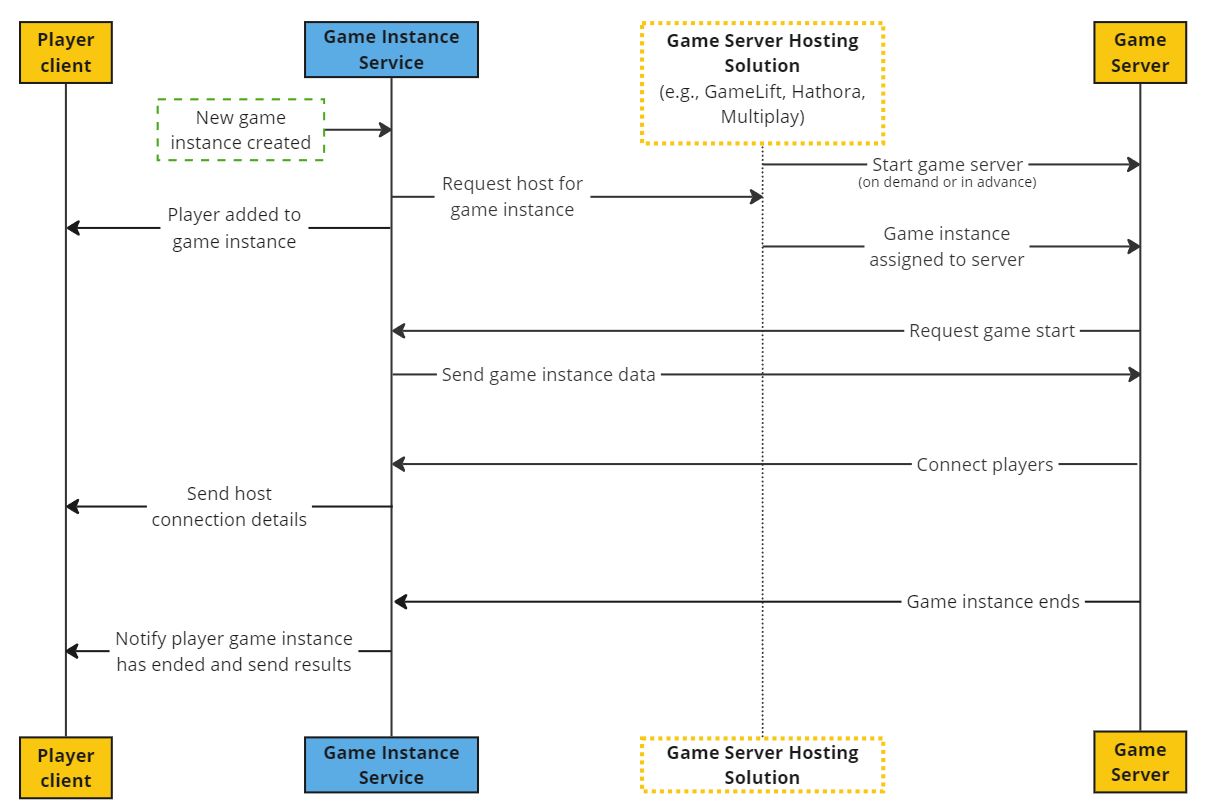Game Instance Service Overview #
The Game Instance service is responsible for tracking in-progress game instances, receiving events from the game server, and executing all end of game processing. In tandem with the Session service, the Game Instance service helps reconnect disconnected players to ongoing game instances.
After game player results are processed, the players are automatically returned to the party service to resume the game loop from there.
Through the Game Instance API and Match API for Unreal and Unity, Pragma provides methods that developers can use to facilitate game instance processes, such as connecting more players or ending the game. In the Game Instance Tasks topic we’ll see how these methods can be used. You can view a list of the Game Instance service SDK methods in the Game Instance Reference topic.
Teams #
Pragma Engine allows for creating teams of players or parties within a game instance. This allows for a scenario where a developer wishes to split the players or parties into opposing teams when necessary for MMR balancing. See Assign Teams to learn how to assign a player or party to a team once in a game instance.
End of game processing #
When game instances end, the Game Instance service processes individual players, as well as the complete game instance end flow. This includes making parallel requests to all services that need to process game instance results, aggregating the respective results, and sending the results notification to players. Players removed from the game instance before the game ends can be included in end game processes and receive end game data. This is useful if you have a game that issues additional rewards to players at the end of the game, whether or not they are still active.
